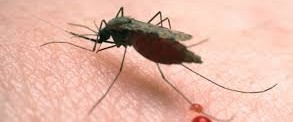We recently published the following article:
Datiko DG, Lindtjørn B (2010) Cost and Cost-Effectiveness of Treating Smear-Positive Tuberculosis by Health Extension Workers in Ethiopia: An Ancillary Cost-Effectiveness Analysis of Community Randomized Trial. PLoS ONE 5(2): e9158. doi:10.1371/journal.pone.0009158
ABSTRACT:
Background
Evidence for policy- and decision-making related to the cost of delivering tuberculosis (TB) control is lacking in Ethiopia. We aimed to determine the cost and cost-effectiveness of involving health extension workers (HEWs) in TB treatment under a community-based initiative in Ethiopia. This paper presents an ancillary cost-effectiveness analysis of data from a RCT, from which the main outcomes have already been published.
Methodology/Principal Findings
Options of treating TB patients in the community by HEWs in the health posts and general health workers at health facility were compared in a community-randomized trial. Costs were analysed from a societal perspective in 2007 in US dollars using standard methods. We prospectively enrolled smear-positive patients, and calculated the cost-effectiveness in terms of the cost per patient successfully treated. The total cost for each successfully treated smear-positive patient was higher in health facilities (US$161.9) compared with the community-based approach (US$60.7). The total, patient and care giver costs of community-based treatment were lower than health facility DOT by 62.6%, 63.9% and 88.2%, respectively. Involving HEWs added a total cost of US$8.80 to the health service per patient treated in the health posts in the community.
Conclusions/Significance
Community-based treatment by HEWs costs only 37% of what treatment by general health workers costs for similar outcomes. Involving HEWs in TB treatment is a cost-effective treatment alternative to the health service and to the patients and their caregivers. Therefore, there is both an economic and public health reason to consider involving HEWs in TB treatment in Ethiopia. However, community-based treatment would require initial investment for implementation, training and supervision.
Trial Registration
ClinicalTrials.gov NCT00913172
